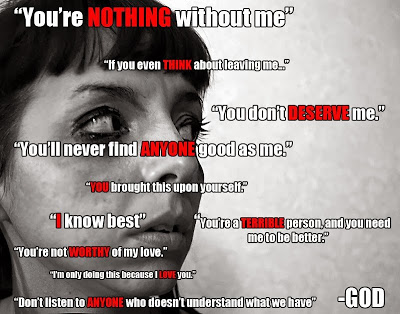“This Is My Work and My Glory”
Moses 1
Link to the reading in the SAB: Moses 1
LDS manual: here
Background
The Old Testament is the longest and most involved of the four volumes of LDS scripture, so we’re going to get started this week by not reading any of it. Instead, we’re going to start with some OT fanfic, the Book of Moses. In Joseph Smith’s time, it was widely thought that Moses had written the first five books of the OT, which made him a natural choice for a protagonist. That turned out wrong, but at least this is a less-obvious blunder than the Book of Abraham, which we’ll tear into in the next lesson.
Main points for this lesson
The Old Testament: Wow, it really is that bad.
The Old Testament is a work of cruelty, discrimination, misogyny, and homophobia. Its protagonist, a primitive Hebrew deity, is largely concerned with cementing his own reputation as a major player in the world pantheon, while caring surprisingly little for human well-being. Despite being (allegedly) all-powerful and all-good, he allows (and in some cases, encourages) a shocking array of atrocities, including rape, child-murder, and genocide. If the Bible were any other book, it would carry a warning sticker.
The fact that the events of the Old Testament are largely fictional hardly mitigates its barbarism, since Christians all over the world routinely defend its contents, and are shocked, angered, or disappointed to be informed that they have no factual basis in reality.
Jesus is the god of the Old Testament.
From the real manual:
Note: Class members should understand that Jehovah, not Heavenly Father, appeared to Moses in this vision. Jehovah was the premortal Jesus Christ and the God of the Old Testament.
That’s something to keep in mind as we trawl through the carnage of the Old Testament this year — it’s actually Jesus doing it.
One popular dodge that Christians (including Mormons) use to excuse this cruelty is “But that was the Old Testament!” While this does explain away the archaic and unpleasant Mosaic rules, it doesn’t do much to excuse the inexcusable conduct of Jehovah, and the fact that Mormons think these atrocities were authored by Jesus himself makes explaining them away even more problematic. Christianity has set up a good cop/bad cop duality in the form of God/Jesus (even though they think the two are the same person), but with Jesus and Jehovah being the exact same person, Latter-day Saints cannot reasonably avail themselves of it.
Moses 1:6
And I have a work for thee, Moses my son; and thou art in the similitude of mine Only Begotten; and mine Only Begotten is and shall be the Savior, for he is full of grace and truth
In this scripture, Jehovah has apparently forgotten that he’s Jesus. Perhaps the Mormon view of the pre-mortal Jesus was still evolving at the time the Book of Moses was written, or perhaps God was having some trouble grasping the whole Godhead concept.
The manual explains it like this:
His words are those of the Father, and sometimes, as in Moses 1:6, he speaks in the first person for the Father.
Why would Jesus sometimes say that he’s the Father? Why would he not communicate clearly who he is? This is confusing, and God is not supposed to be the author of confusion. This is simply a clumsy dodge to explain away an inconsistency.
Object Lesson
Hi, I’m Steve! Well, I’m really Dave, but me and Steve are really close. In fact, we’re so close that sometimes I don’t realise I’m Dave, and I call myself Steve! But I’m really Steve! Whoops, I did it again! Dave! No, wait, Steve! Wait…
Ask: How would you respond to someone whose identity was so poorly defined or possibly compromised?
Possible answers: Gaze upon them with pity, back away slowly, don’t give them any money.
Moses 1:7–11
In these scriptures, God visits Moses, and tells him he is a son of God.
Ask: How does it make you feel to be told you are a child of God?
Possible answer: It appeals to my sense of vanity and need to feel significant.
Then, when God goes away, Moses collapses.
And it came to pass that it was for the space of many hours before Moses did again receive his natural strength like unto man; and he said unto himself: Now, for this cause I know that man is nothing, which thing I never had supposed.
Ask: Is a person a child of God, or are they nothing? Which is it?
Answer: Whichever the Church needs to emphasise at any given time. It wouldn’t do to rip people down all the time; they’d get sick of it. It would be a better idea to build them up sometimes, so they feel like you’re the source of their good feelings. Then they’re ready for you to yank the rug out from under them when needed.
Make sure you saddle them with arbitrary moral rules that they’ll be unable to observe. This will keep them locked into an orbit of failure and redemption, with you at its centre.
- They feel great because of their relationship with you
- They inevitably fail to maintain your impossibly high standards, and feel like they’ve betrayed you
- They come to you for forgiveness, and feel great again.
Lather, rinse, repeat.
Here’s another problem with the whole ‘child of God’ idea: it’s meant to give you self-esteem, not because of who you are, but because of your relationship to someone else. Your worth doesn’t come from anything related to you; it’s because of who your father is. As this scripture says, you’re nothing. Your worth always ties back to someone else. This is not the way to build a lasting sense of self-worth; it builds dependency.
Some believers might read this post and think, “well, that’s actually right: I am nothing, God is everything, and I am dependent on him.” If this is the case, ponder how amazingly well this strategy has worked on you. You are hooked.
Additional Teaching Ideas
Do a Google search for “signs of an abusive relationship”. This list is like many others. Take a look at these warning signs.
- He pushes for quick involvement.
- There is jealousy.
- He is controlling.
- He has very unrealistic expectations.
- There is isolation.
- He blames others for his own mistakes.
- He makes everyone else responsibile for their feelings.
- There is hypersensitivity.
- He is cruel to animals and children.
- His “playful” use of force during sex.
- There is verbal abuse.
- There are rigid gender roles.
- He has sudden mood swings.
- He has a past of battering.
- There are threats of violence.
How many of these warning signs does God show? (We’ll be revisiting this list throughout the year.)
Show the following graphic:
Ask: If your friend was in a relationship where their partner told them these things, what advice would you give to your friend?
Answer: If you were any kind of friend at all, you’d be encouraging them to dump the jerk, if not offer to go and get their things for them.
If your relationship with your god does not resemble this description, good. Your concept of god is probably healthier than the one presented in the Book of Moses.
Conclusion
The relationship described in Moses 1 is a bad deal. Relationships are difficult when there’s a significant power imbalance, and this would be the ultimate power imbalance. We should wish to have nothing to do with a being who can read our thoughts, demands our loyalty, and who can impose eternal consequences for our compliance (or non-compliance) to their wishes. As Christopher Hitchens points out, we should be grateful that this is not true.
from 2:13
The reasons why I’m glad that this is not true, would I suppose be the gravamen of my case. Some people I know, who are atheists, will say the wish they could believe it. Some people I know who are former believers say they wish they could have their old faith back. They miss it.
I don’t understand this at all. I think it is an excellent thing there is no reason to believe in the absurd propositions I just… admittedly rather briefly rehearsed to you.
The main reason for this I think is that it is a totalitarian belief. It is the wish to be a slave. It is the desire that there be an unalterable, unchallengeable, tyrannical authority, who can convict you of thoughtcrime, while you are asleep.
Who can subject you — who must indeed subject you — to a total surveillance, around the clock, every waking and sleeping minute of your life, — I say: of your life — before you were born, and even worse, and where the real fun begins: after you’re dead. A celestial North Korea.
Who wants this to be true?! Who but a slave desires such a ghastly fate?



5 January 2014 at 7:09 am
I… cannot… believe… how much I enjoyed this. Bravo. and while I doubt you can make it 4 years doing this, I applaud your attempt and will try to doubt my doubts about that.
5 January 2014 at 9:53 am
Thanks!
I did church for 38 years, so four's a snap. And I've got a lot to say.
5 January 2014 at 3:55 pm
This! Was! Wonderful! I would gladly tune into to 4 years of this. Well done, well researched, entertaining, informative, and for the first time in forever I will be looking forward to Sunday lessons.
7 February 2014 at 3:59 am
Holey Moses! That was a treat.